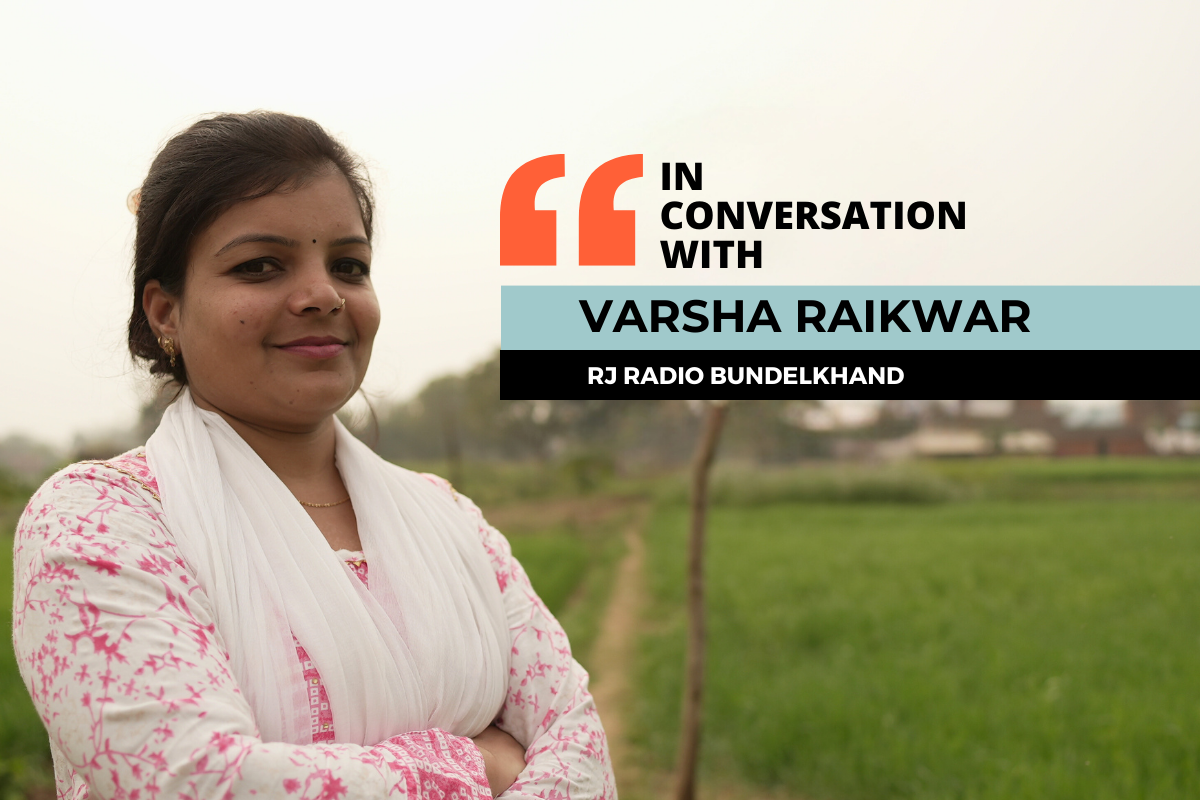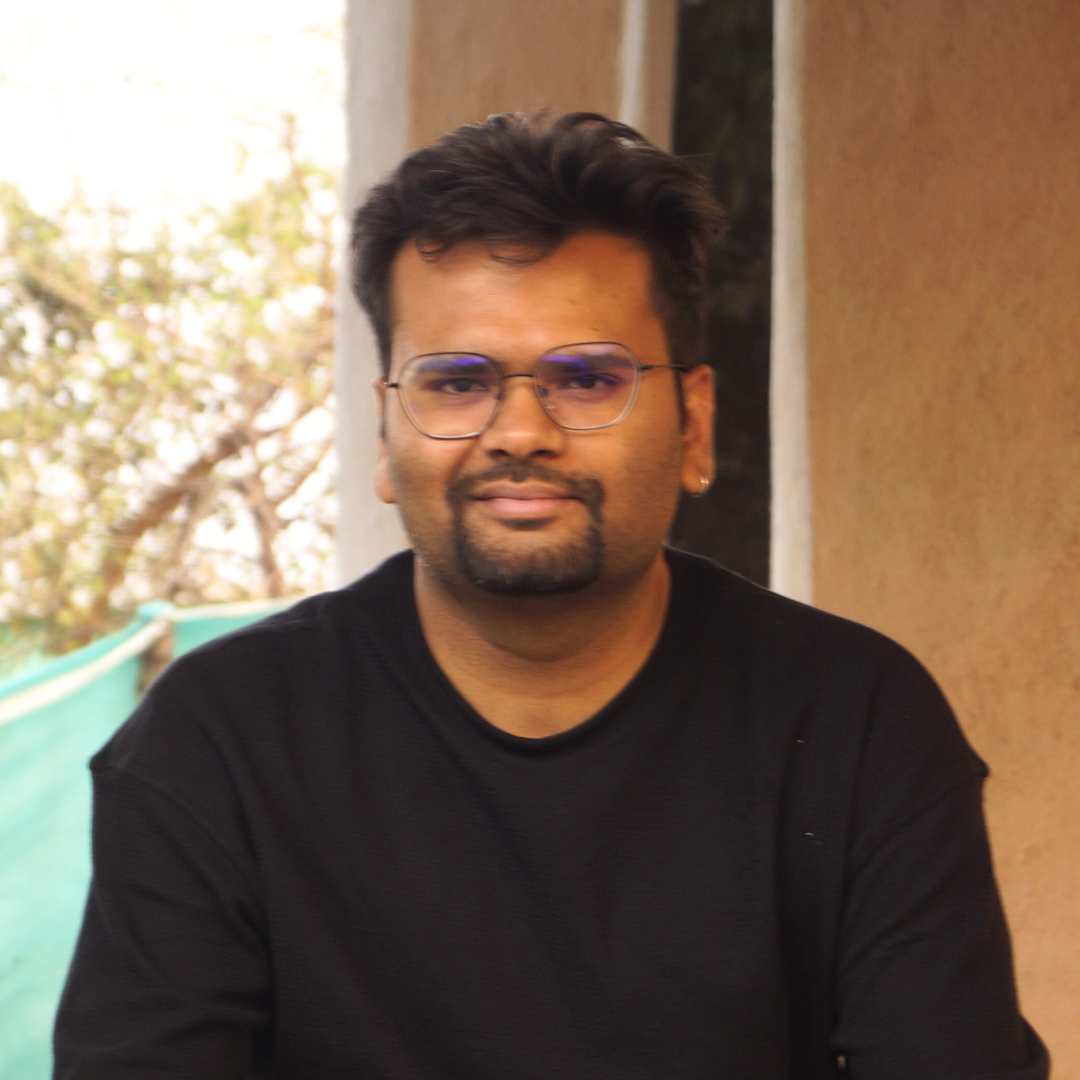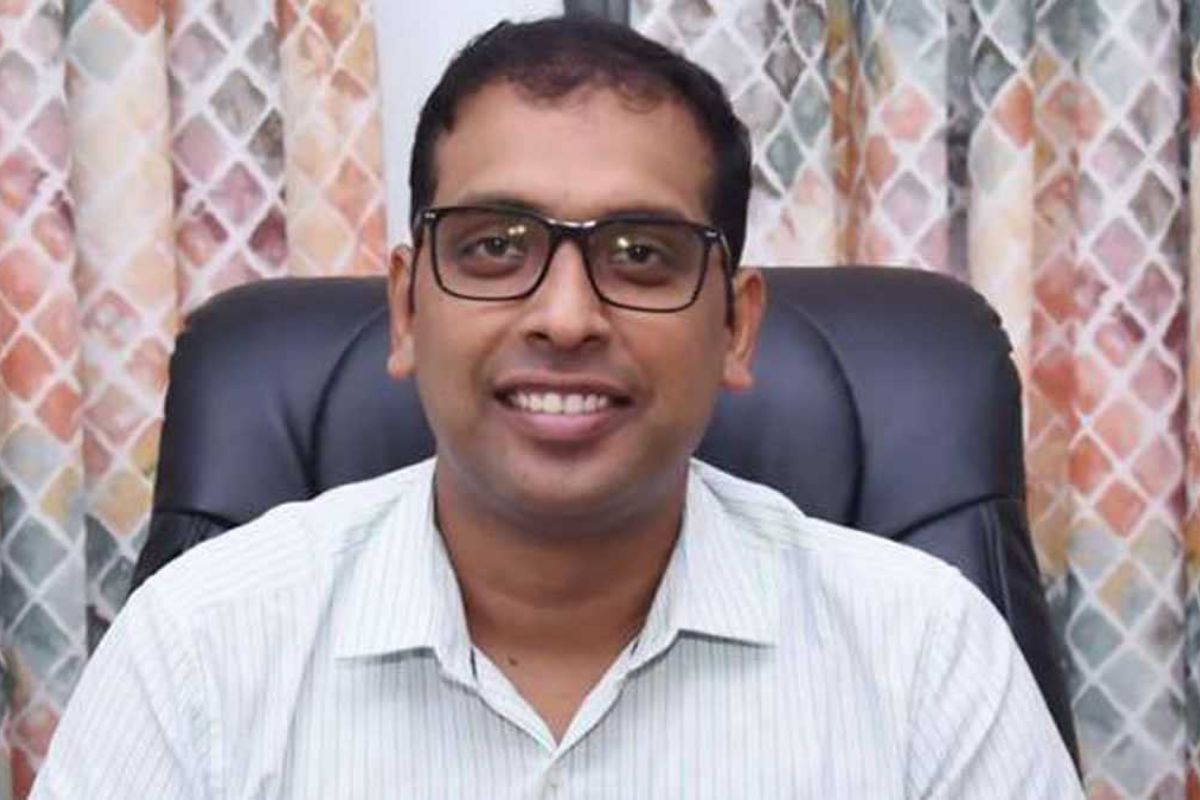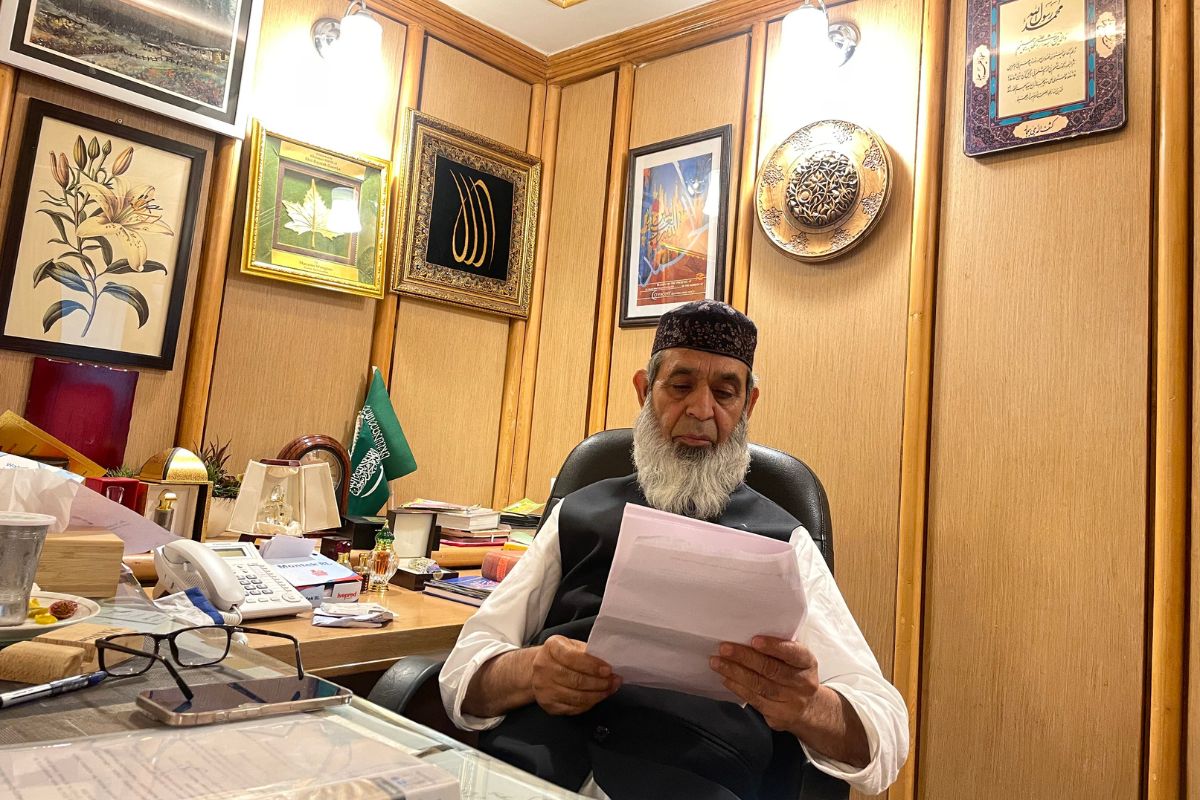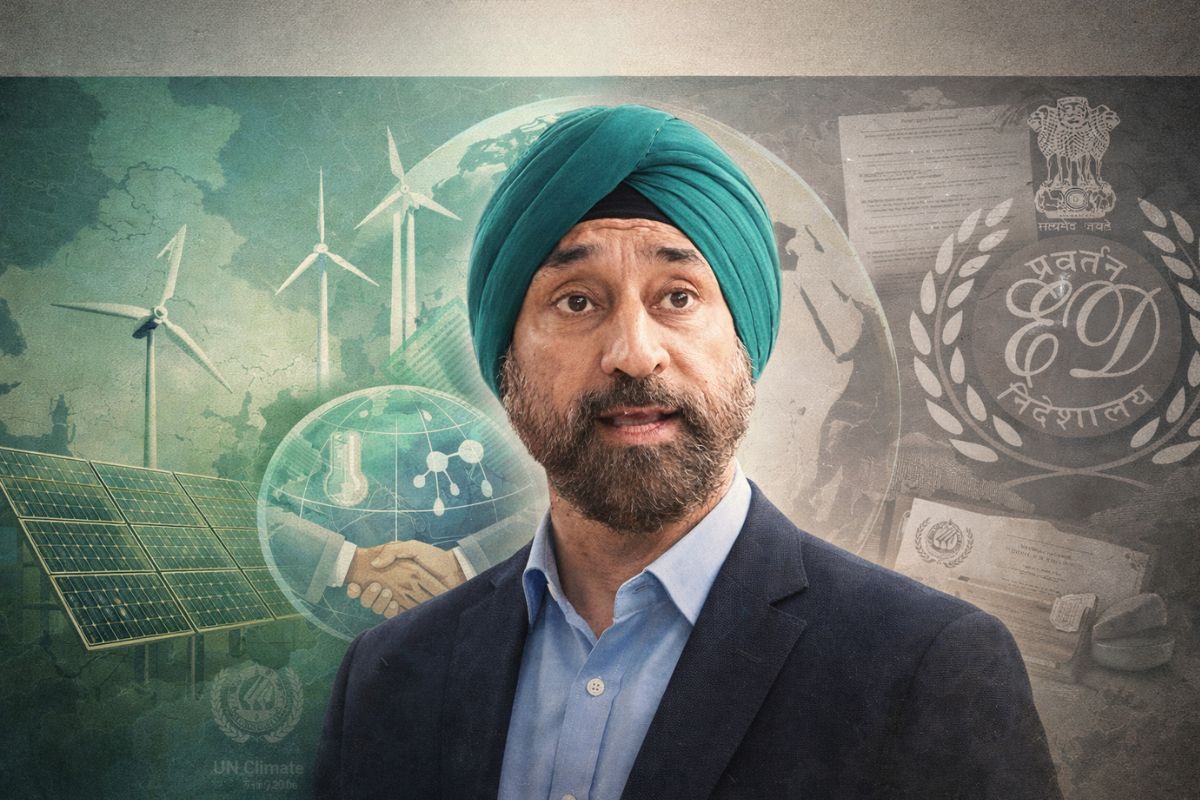Radio Bundelkhand is being run by Development Alternatives a Delhi-based social enterprise and think tank. Being the first female Radio Jockey Varsha Raikwar talked about her journey against social frowns and her interest in understanding the impacts of climate change.
Varsha believes that the problem in the region is aggravated by climate change, and addressing the concerns of the vulnerable population is essential. When she started working at the Radio Bundelkhand, a program on climate change was already being produced here known as ShubhKal. Hence, for Varsha, ShubhKal became a medium to learn more and fill the information gap on the impacts of climate change in the community. Over the years, the community radio has over 250 villagers in the area through various programs. Varsha said that most of the listeners are farmers and women. In addition, the organization runs programs targeting youth, children, and women. However, most of its reach is to farmers and women.
The Ground Report team spoke to Varsha and learned about Radio Bundelkhand’s journey and its impact on the region.
Common man’s language, common man’s characters
She had realised that whatever people from outside explained to the villagers had no impact on the common people, one reason for this was the difference in language. Hence, Varsha said,
“To connect with the people in the programme, we used the Bundeli language of Bundelkhand”.
She also prepared the characters of her program based on regional culture. For example, the characters of Bairu Bhauji and Devar Lal Singh were created to engage the audience. Thematically, she explained, the brother-in-law does things which are not good for the environment, and his sister-in-law conveys its ill effects. Varsha added,
“Through this programme, people were getting entertainment as well as information, and the program was liked a lot by the people.”
Varsha said that the initial journey was a bit challenging. People did not pay attention, rather asked, why should we listen to you, we have to go to our work. But, we started explaining climate change by linking it to their personal lives. For example, we told them that today the rivers have dried up. Therefore, their farms are not getting water. This impacts their farming, and they must migrate to cities for employment. And, all this makes the future of their children insecure as well.
When these problems became relevant to people’s common lives, they started paying attention to what we said. This also had a positive impact.
Unlike other radio programs, Radio Bundelkhand isn’t limited to songs and entertainment. They focus on ground-based issues and comprehensive solution-based programming. They regularly visit the areas to collect stories, opinions, and feedback.
Parallel feedback process
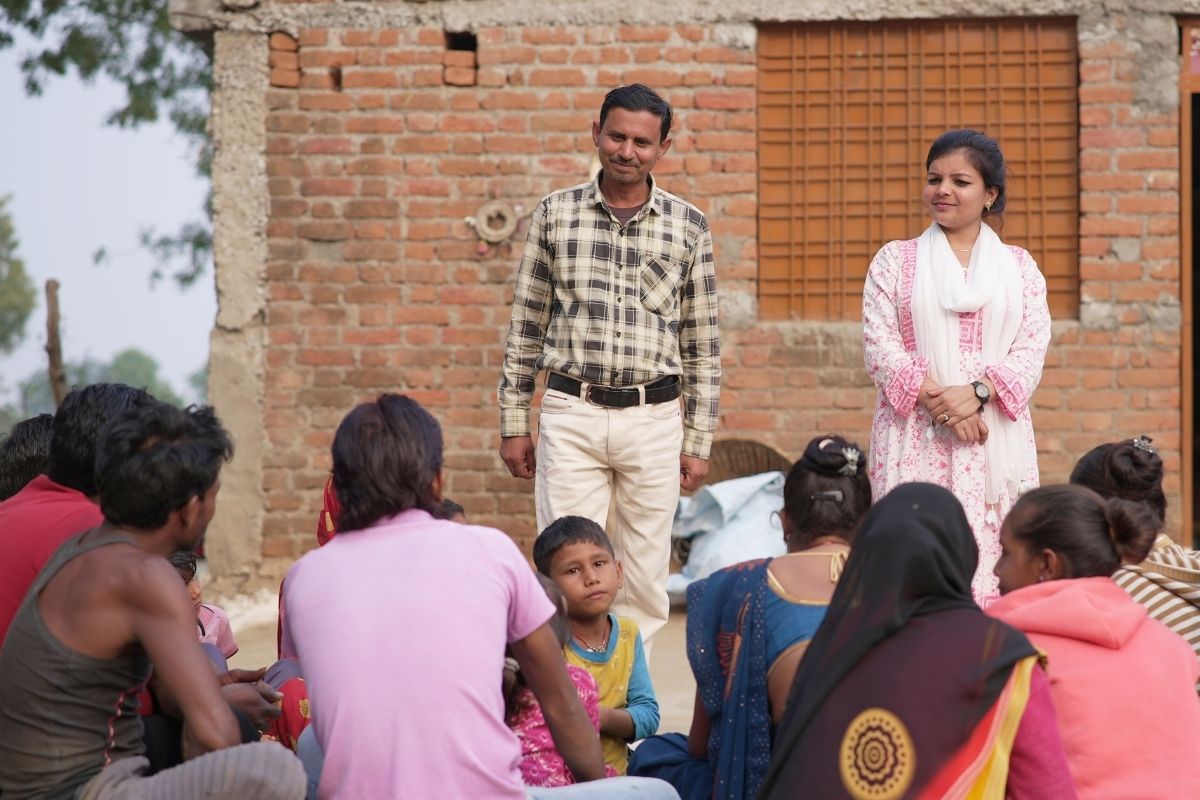
There is a constant feedback process, and it is an important part of addressing the problem at hand. Even the topics are suggested by the public, and then later produced into the comprehensive informative shows. Radio Bundelkhand also started doing narrowcasting by going from village to village. Forming a team of 20-25 people, we used to go to the villages and communicate directly with the people. They also gave us their feedback directly. Apart from this, they told us their problems and questions related to agriculture etc. We used to collect their answers from the experts of our agriculture department and tell them on the next visit. This increased their trust in us and we could establish an interactive dialogue with our listeners.
She said,
“There are times when the listeners call us, and say that they did not understand a particular thing in the previous programme… we would make efforts to explain it to them.”
To enhance participation and engagement in our program, they organize small quiz competitions where participants have the chance to win practical gifts such as buckets, shovels, and other items useful in their daily lives. Varsha noted that these programs have had a positive impact. Listeners have begun implementing water-saving practices like rainwater harvesting and adopting agricultural techniques discussed in the program.
The program’s reach is in 250+ villages in Tikamgarh, Datia, Jhansi, and Niwari of Bundelkhand. Through, apps and streaming platforms, listeners from outside the states also connect and share their feedback.
Women’s program ‘hello Saheli’
Varsha acknowledges that women are only sometimes comfortable in reaching out with their issues, and concerns. To address this, the community radio has a dedicated program for women called ‘‘Hello Saheli’.
Giving examples of this program, Varsha said,
“Once we came to know that a girl was being forced into child marriage. Then, I, along with my seniors went to meet the girl’s family. We were able to explain to them how… the marriage didn’t go happen”
In the program, women ask about their personal health issues like, concerns regarding their breast problems. When similar concerns were raised, she said,
“She contacted the doctor in her organization. The woman was treated, and she is healthy now.”
A general understanding is that farmers are only men, but women are as involved as men in agriculture. Varsha mentioned that programs like these help women take equal responsibility for the harvest in the field. A program enabling women to openly, and comfortably talk about their concerns, with an assurance that another woman will understand them, is a great marker of success for Varsha
Varsha’s journey
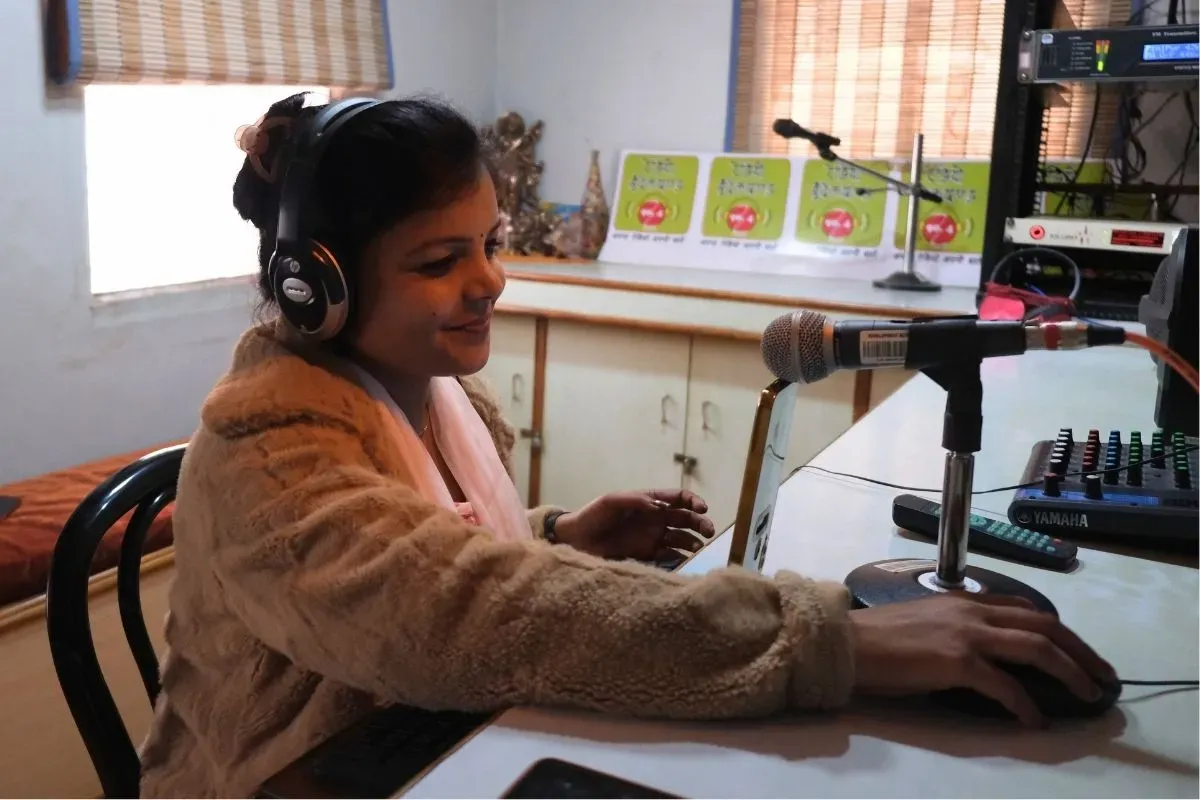
When she started working in the community radio, the neighbours frowned upon it. Even, her parents didn’t like Varsha working. However, as Varsha said, her elder sister supported her a lot. She faced a lot of trouble in commuting to the office, and people casually passed comments on her. She added,
“Whether it is a city or a village, women in India face difficulties everywhere. But, this does not mean that they should accept defeat. We have to move forward facing them.”
Later, after seeing Varsha’s work, and its impact on the ground, even her parents agreed to her choices.
What new thing is Varsha going to do in her program next?
Varsha said that she wants to make people aware of the government schemes. In addition, to make the dialogue more effective, they wish to engage government officials, educational institutions, and other experts as well.
Varsha believes that villagers take government officers’ words more seriously. Currently, their work is on pause due to the Lok Sabha elections, and they plan to resume afterwards. Additionally, Varsha is collaborating with the L’Oreal Foundation to promote women’s participation and awareness regarding climate change.
Varsha said,
“Farmers use chemical fertilizers in the greed of small production, and we should avoid them all. Apart from this, we should take every step, and keep the future of our children in mind. If our environment is not safe then how will the future of our children be safe?”
Varsha and Radio Bundelkhand have dispelled the myths that no one listens to the radio anymore, that people are uninterested in environmental issues, and that women cannot excel in this field. Through their programs, they have demonstrated that radio remains a relevant medium and that people are still concerned about the environment, as long as the communication is engaging and continuously evolving.
Support us to keep independent environmental journalism alive in India.
Keep Reading
The costliest water from Narmada is putting a financial burden on Indore
Indore’s Ramsar site Sirpur has an STP constructed almost on the lake
Indore Reviving Historic Lakes to Combat Water Crisis, Hurdles Remain
Indore’s residential society saves Rs 5 lakh a month, through rainwater harvesting
Follow Ground Report on X, Instagram and Facebook for environmental and underreported stories from the margins. Give us feedback on our email id greport2018@gmail.com.
Don’t forget to Subscribe to our weekly newsletter, Join our community on WhatsApp, and Follow our YouTube Channel for video stories.
